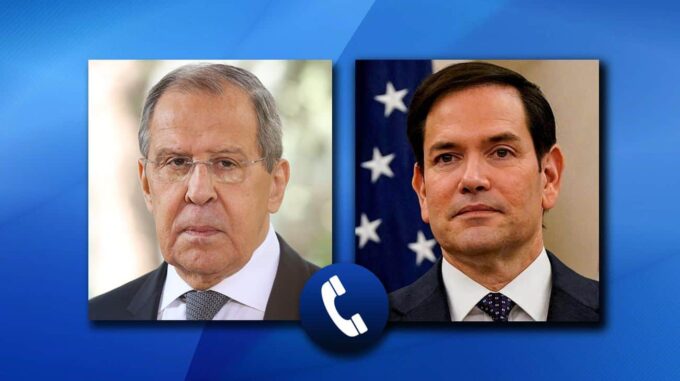In Russia, an official statement expressed condolences from Marco Rubio in connection with sabotage of railway infrastructure and tragedies in Ukraine

On Sunday, another round of diplomatic negotiations took place in Moscow between Russia and the United States, during which the latest events in Ukraine and the surrounding region were discussed. According to the Russian news agency RIA Novosti, citing the Russian Foreign Ministry, the leading diplomatic representatives of the two countries – Foreign Minister Sergey Lavrov and U.S. Secretary of State Marco Rubio – established a platform for exchanging views on the current situation at the front and the escalation of the conflict. As reported by the Russian foreign policy agency, during a telephone conversation that occurred on Sunday evening, Rubio expressed condolences regarding the tragic consequences of sabotage of railway infrastructure in the Bryansk and Kursk regions, which resulted in casualties and significant disruptions in regional logistics chains. The Russian Foreign Ministry emphasized that during this conversation, the parties also discussed plans to resume direct Russian-Ukrainian negotiations scheduled for June 2 in Istanbul, highlighting the importance of diplomatic efforts to find a resolution to the conflict. At the same time, U.S. State Department representatives have not yet made official statements regarding this conversation, which once again adds to the uncertainty surrounding diplomatic channels between the two global powers in the context of the Ukrainian conflict. Background to the tragedy: on the night of Sunday, a major accident occurred in the Russian Bryansk region – a railway bridge collapsed, on which vehicles were located. Preliminary reports indicate that a passenger train was passing nearby at the time, resulting in 7 deaths and about 70 injuries. The region also confirmed the collapse of another bridge in the Kursk region, which happened approximately simultaneously. According to official information from Russian investigators, both incidents – in Bryansk and Kursk regions – are linked to sabotage, which federal investigators qualified as terrorist acts. Investigations have established that these sabotage acts caused the destruction of the bridges, which generated significant resonance and contributed to increased tensions in the region. In the immediate aftermath of the incident in Bryansk, Russian authorities, citing the impossibility of restoring the damaged infrastructure, decided to completely destroy the affected bridge, raising many questions about further logistics and security in the region. Investigations and operational checks of all circumstances surrounding this emergency are still ongoing. It garnered particular attention that the sabotage affected objects of strategic importance for railway communication, which could have consequences not only for regional security but also for the overall situation in the conflict zone. Analysts and experts point out that this incident may be indicative of growing tensions and escalation of hostilities, as those responsible for the sabotage attempt to increase pressure on the conflicting parties by using sabotage and diversionary acts as destabilization tools. The Russian Foreign Ministry emphasizes that the events in Bryansk and Kursk regions are being thoroughly investigated, and allegations of terrorist acts are solely directed at those seeking to destabilize the situation in the region and beyond. At the same time, Moscow calls for maintaining focused diplomatic work and seeking ways to de-escalate the conflict within its borders and overall in the Ukrainian context. Alongside this, news of the sabotage has sparked broad public resonance and a wave of discussions among both political elites and the general population. Ensuring the safety of civilians and critical infrastructure objects remains an extremely important issue. However, whether this will be merely another episode in a series of provocations and diversions or a catalyst for a new phase of the military conflict remains an open question. There are currently no clear answers, and the situation continues to be tense and unpredictable.

